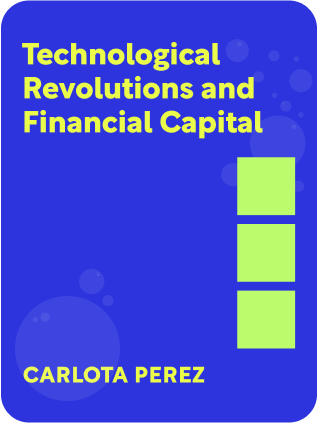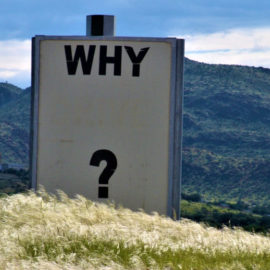

This article is an excerpt from the Shortform book guide to "Technological Revolutions and Financial Capital" by Carlota Perez. Shortform has the world's best summaries and analyses of books you should be reading.
Like this article? Sign up for a free trial here .
What was the 5th industrial revolution? How did this revolution happen, and what technologies were developed to begin this revolution?
The 5th industrial revolution was when new information and telecommunications technologies were developed. These new technologies led to the age of the internet and change the landscape of the economy.
Read more about the 5th industrial revolution, also known as the age of information and telecommunications, and how it changed the world and the economic landscape.
5th Industrial Revolution: Age of Information and Telecommunications – 1971
The 5th industrial revolution was shepherded in during the 1970s with the invention of cheap electronics and new technologies in telecommunication.
New technologies and industries of the fifth industrial revolution
- Cheap microelectronics
- Computers, software
- Telecommunications
- Control instruments
New or redefined infrastructures of the digital technology revolution
- World digital telecommunications
- Internet and e-services
- Electronic mail
- High-speed physical transport links
“Common-sense” innovation principles of the fifth industrial revolution
- Decentralized network structures
- Knowledge as capital – intangible value added
- Heterogeneity, diversity
- Segmentation of markets, proliferation of niches
- Personalization and customization, anti-mass market
- Economies of scope and specialization, combined with scale
- Globalization, interaction between global and local
- Instant global contact
Shortform note: the transition between the previous technological revolution of mass production and the current one of information technology may be the most familiar to readers, so it’s worth elaborating on this as we talk about the digital technology revolution or the information technology revolution.
A key point of the book is that the technological revolution not only shapes the economy but also social mindsets. In this case, information technology allowed distribution at zero marginal cost, which allowed for the proliferation of niches and emphasis on diversity.
In the past, distribution used to cost a lot of money – newspapers had to be printed, retail stores needed rent. Thus producers benefited from large economies of scale, encouraging homogenization of consumption.
The internet made distribution nearly free, reduced startup costs, and enabled discoverability. Thus niches could thrive without needing mass economies of scale. In turn, this developed into a general social acceptance of diversity and individuality. And thus technology shapes society, particularly in the information technology revolution.

———End of Preview———
Like what you just read? Read the rest of the world's best book summary and analysis of Carlota Perez's "Technological Revolutions and Financial Capital" at Shortform .
Here's what you'll find in our full Technological Revolutions and Financial Capital summary :
- What happened during the 2000 tech bubble and the 2002 crash
- The 5 technological revolutions that reshaped society since 1771
- How you might be able to predict and prepare for the next technological revolution






